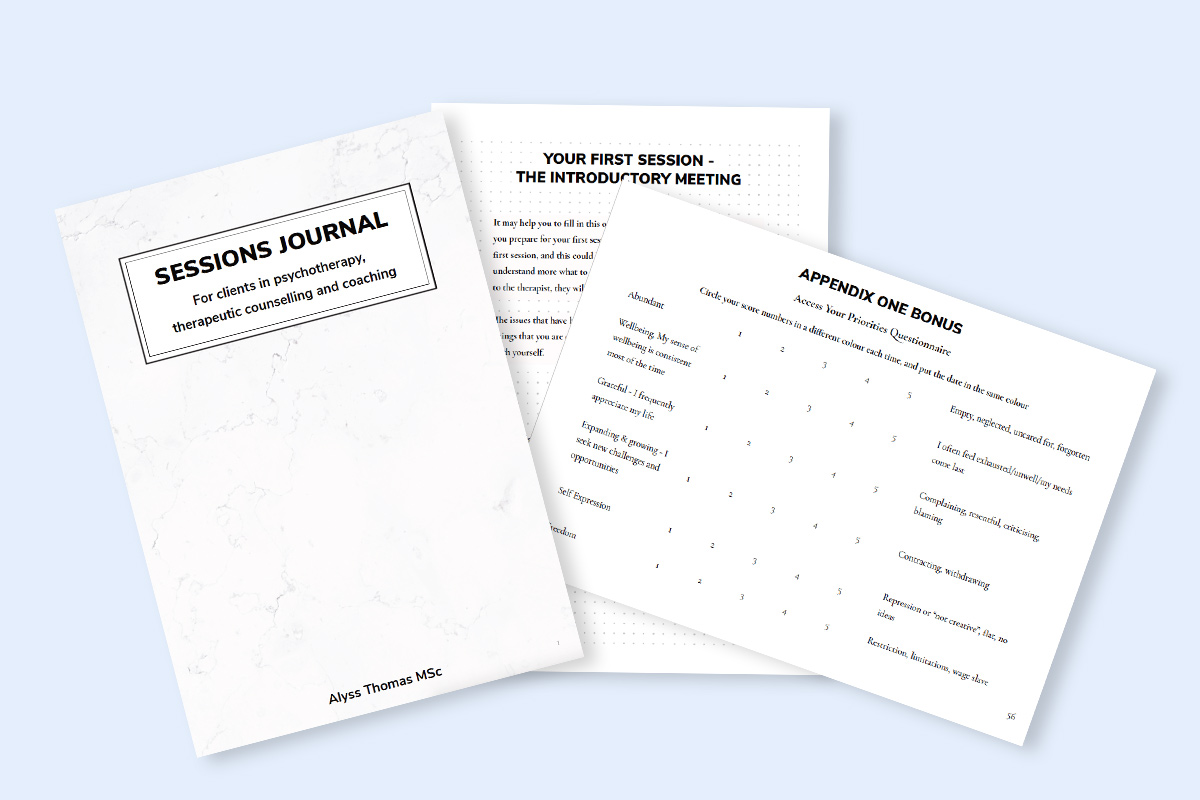Over many years as a psychotherapist, therapeutic coach and counsellor I have seen that those clients who journal their therapy sessions effectively make more progress, more easily. This is in part because focussed journalling enables you to become fully engaged and an active participant in your own therapy. It helps you focus and direct your attention.
In my experience, simple, direct journalling tools change lives, once you have learned how to use them. Regular and consistent, structured journal writing alongside your therapy will enhance and deepen the therapy that you undertake. It can support you to move through it more confidently.
Guided journalling can be an important part of your work on yourself. Following a structured journalling approach is a way that you can strengthen yourself, and take an active part in your own growth and development while you are attending therapy.
As a psychotherapist in practice for 30 years, and an enthusiastic teacher of journalling, I have developed a unique perspective on how to make journalling and therapy work together to bring you encouraging results and to motivate you further.

I have developed this specific journalling tool to help all psychotherapy and counselling clients progress in therapy. It reduces your reliance on the therapist, and helps you in learning how to understand yourself and make positive changes. It reduces the confusion and uncertainty you might feel when beginning therapy. Guided journalling is a skilful way to give yourself focused, quality attention, and to be fully present with yourself.
Your therapy journal can be a dynamic bridge between the therapy sessions and your everyday. The journal provides you with an opportunity to be present and attentive with yourself, just as your therapist attempts to do this with you during your sessions. This type of guided therapeutic journalling can help you with the all-important process of applying therapy in any challenging situations that crop up between sessions. It helps you learn from any mistakes or difficulties, rather than criticise yourself for them!
The measure of how effective your therapy is in the long term can be seen in how well you are able to apply it consistently over time, and make the necessary changes. Regular journalling can enable this important work to flow more easily. It offers you a context in which to process and come to terms with new thoughts, ideas and feelings and to record your insights.
Know you are not alone in your therapeutic journey, even though it may often feel like. You are joining all of us across the world who have stood up within ourselves and have said that we will no longer condone or go along with the negative conditioning, feeling bad about yourself, the lack of self respect, the confusion, the low self belief and confidence, the difficulty with valuing and focusing on your own true needs, the negative relationships, the control or abuse and whatever else you have experienced. By changing yourself you are making a significant contribution to the world around you, as well as your own happiness and wellbeing and that of your family.
This Sessions Journal is specifically designed for adults attending one to one psychotherapy or counselling, to use alongside your therapy. It is for people who are already in therapy, or who are intending to start therapy soon. For less than the cost of one therapy session, you can support and enrich your therapy, in your own time. It is a pdf that you can print and write in, or save and use on a computer. There is also a free bonus questionnaire and a free additional journalling process to use when you are working with difficult and persistent thoughts and feelings.



